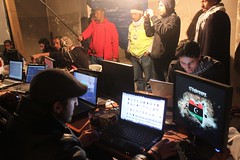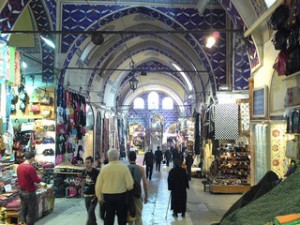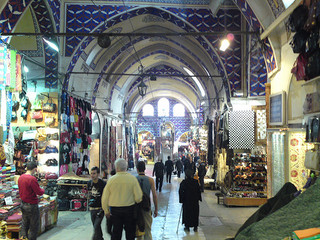“It would be better to have a society with newspapers and no government, than one with government and no newspapers.” – Thomas Jefferson.
 Robert McChesney and John Nichols are two people that have taught me alot about how the global media works and doesn’t work. Their writing has accompanied me throughout my journey as the independent and admittedly unorthodox type of journalist that I try to be. So when they talk, I take it seriously. Last week they were guests on Radio Open Source to talk about their vision of the future of journalism in a digital age. I’m now listening to this program for the third time, still trying to decide what they’re telling us and how I feel about that vision.
Robert McChesney and John Nichols are two people that have taught me alot about how the global media works and doesn’t work. Their writing has accompanied me throughout my journey as the independent and admittedly unorthodox type of journalist that I try to be. So when they talk, I take it seriously. Last week they were guests on Radio Open Source to talk about their vision of the future of journalism in a digital age. I’m now listening to this program for the third time, still trying to decide what they’re telling us and how I feel about that vision.
Ultimately I recommend anyone and everyone out there listen to the program so you get the details directly from them and not from me translating it the way I understand it. But I’ll just go over the part I like best and I feel its close to the “third way” of funding journalism in the future, that I’ve been looking for.
According to McChesney and Nichols, the idea is that a free press will not just happen naturally, if there is no funding for citizen and community media, the government should take steps to make sure it can exist and compete with commercial or any other media. To do so, they envision every citizen getting 200$ (in the US case) in federal money to put towards a non-profit non-commercial media outlet of their choosing, every year.
Thus if there’s a local radio station or newspaper doing work you appreciate and want to see continue, you put your annual money on them. Say you live in a place, a community where you wish there was some kind of community project, you could pool money amongst the people of the neighborhood and start a new non profit media center. In the case that you fund something one year and in that year it doesn’t do what you feel is a good job or ceases to produce anything of use, in the following year you can put your money somewhere else.
At first I thought this plan was an old plan that had been laid out and debunked long ago. But listening to it now, this might really be something. A chance to get around the profit motive that has choked out so much good reporting. It doesn’t mean there won’t be commercial media, those would continue to exist much in the way they do now. In fact McChesney points out that in the nations where the most money is given in subsidies to non-commercial media, the private sector is the most robust! Beyond that such a system would encourage philanthropists, including some people I know, to start new projects in non commercial media and gain support from the public.
Give the program a listen, after 3 listens I have finally recognized that this is not just the same old discussion about what will happen to media.. there are possible answers here.
 Madge Weinstein is an internet celebrity, a culinary pioneer, and an extremely irritable elderly lesbian. Beyond all that, she is an inspiration to several generations of children around the world. After surviving many tragedies, including 3 Bush presidential terms and the current socio-political disaster that has gripped the United States, this podcasting diva has moved her life to Paris where she is sharing her talents with the people of France who already hate her.
Madge Weinstein is an internet celebrity, a culinary pioneer, and an extremely irritable elderly lesbian. Beyond all that, she is an inspiration to several generations of children around the world. After surviving many tragedies, including 3 Bush presidential terms and the current socio-political disaster that has gripped the United States, this podcasting diva has moved her life to Paris where she is sharing her talents with the people of France who already hate her.
 Robert McChesney and John Nichols are two people that have taught me alot about how the global media works and doesn’t work.
Robert McChesney and John Nichols are two people that have taught me alot about how the global media works and doesn’t work. 
 Tucked away somewhere in the labyrinth of streets on the Asia side of Istanbul, you’d think you were walking into someone’s house until you notice that each room in this apartment is part of this modest radio station. Sitting in a sun room with windows overlooking this section of the city, sipping tea, I asked this producer from
Tucked away somewhere in the labyrinth of streets on the Asia side of Istanbul, you’d think you were walking into someone’s house until you notice that each room in this apartment is part of this modest radio station. Sitting in a sun room with windows overlooking this section of the city, sipping tea, I asked this producer from 
 Bianet is an alternative media network in Turkey. The network’s goal is to cover the topics which the mainstream will not or does not, with a special emphasis on human rights, labor, women’s rights, the environment, and much more. How are they funded? Is their structure alternative? What does it mean to be alternative in Turkey’s media landscape? My guest, an editor at Bianet, sat down with me at their office in Istanbul to explain.
Bianet is an alternative media network in Turkey. The network’s goal is to cover the topics which the mainstream will not or does not, with a special emphasis on human rights, labor, women’s rights, the environment, and much more. How are they funded? Is their structure alternative? What does it mean to be alternative in Turkey’s media landscape? My guest, an editor at Bianet, sat down with me at their office in Istanbul to explain.